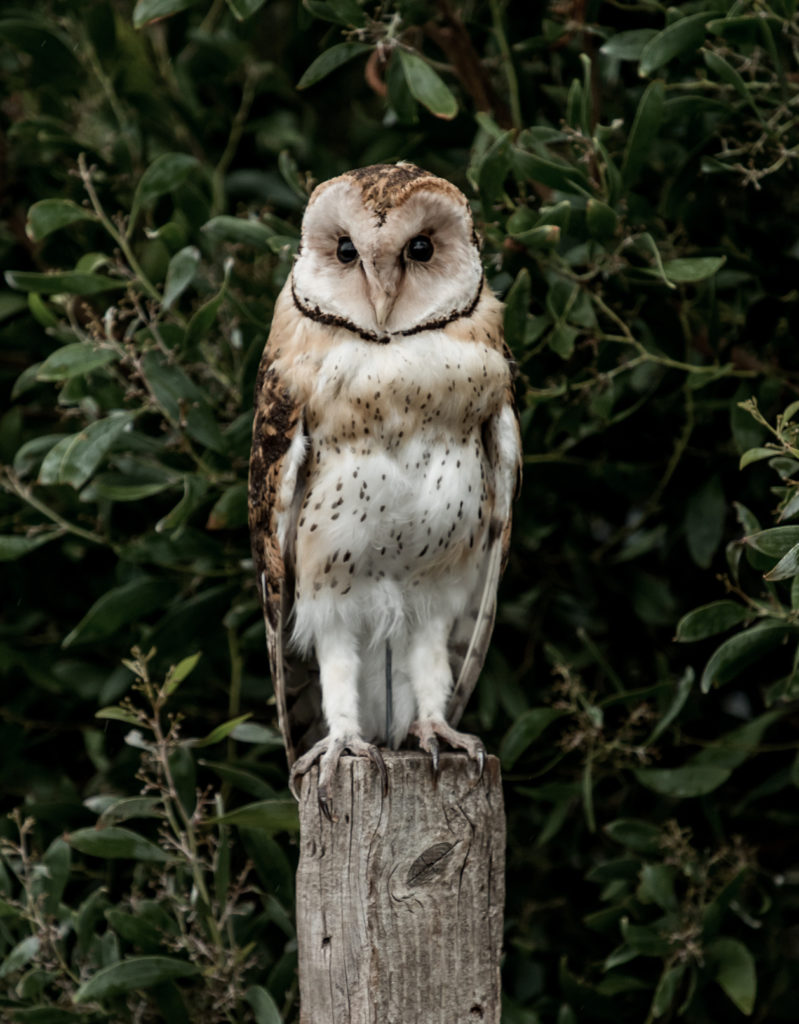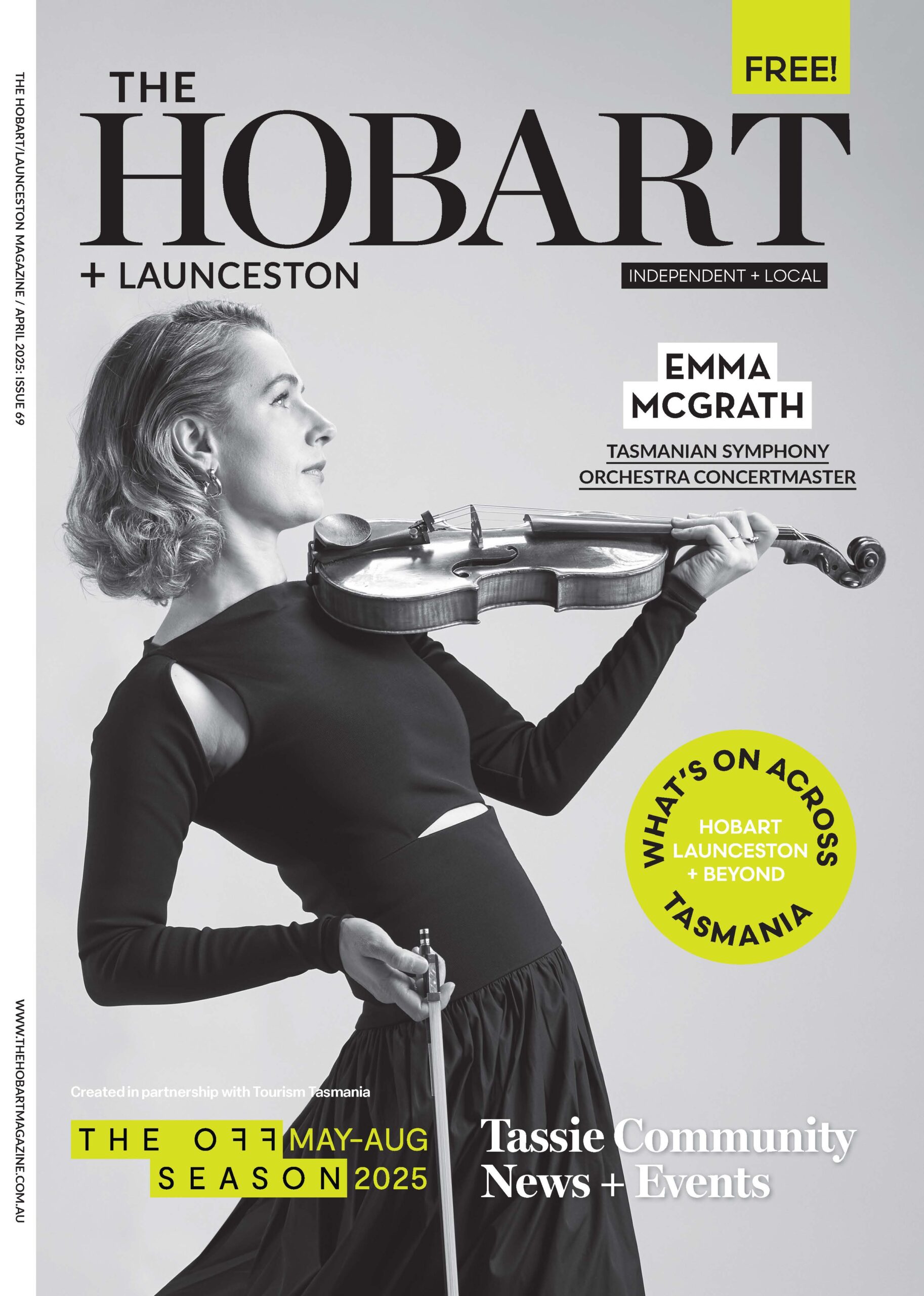Don’t Eat That Rat!
by Landcare Tasmania, Jennifer Gason

It’s the Autumn of 2019. I’m sauntering happily into my kitchen until something catches in the corner of my eye. I stop abruptly and freeze. I am locking eyes with an audacious mouse on my stovetop. Caught mid-munch, my new housemate stares back. The mouse was the braver of us both, and made the first move, scampering at great speed under my kitchen fridge. It didn’t take long for me to realise that this mouse had brought its family and friends along to an extended, all-you-can-eat holiday at my place.
I’m sure many of us know the horror of finding that a furry friend has taken residence in the back of your pantry. Others in food retail, hospitality, farms and factories will know the distress of trying to keep these spaces free of rats and mice. As the colder months approach, rats and mice are looking for a warm place to stay. Across Tasmania a war is waged against rodents in both urban and rural settings, often through the use of poisons.
So, I don’t want to share my packet of honey oats with the local family of rodents – what are my options? Is it time to reach for the rodent poison?

It can seem like an easy option. But that same Autumn, I started volunteering with Landcare Tasmania as an eager office helper. It was here that I learnt why to avoid poison, and not just because you’ve become fond of Helga, Nigel and their three babies.
We commonly consider the impact of rodent poisons on children and pets –but not so much our native wildlife. However, the impact doesn’t stop at the rat – rodenticides have devastating consequences for many animal species and whole ecosystems.
This happens because animals of prey such as raptors, quolls and devils eat dead or sick poisoned rodents, and end up dying in large numbers too. Like myself back in 2019, most people aren’t aware of these second-hand impacts.
Birds of prey, such as the endangered Masked Owl are particularly vulnerable to rodenticides (this is because they ingest their prey whole – including all the poison in the rodent’s stomach). Wedge Tailed Eagles, Goshawks, and Peregrines are species that are also severely affected. When they eat dead or dying rodents they are poisoned themselves and their deaths have serious impacts on the ecosystems they are a part of.
Modern rodenticides labelled as ‘one shot’ or ‘one bite – one kill’ have the worst impact on our wildlife because of their active ingredients such as Brodifacoum and Bromadiolone (the Bros) being more toxic, and are being stored longer in the rodent’s tissues. These are known as ‘Second-Generation’ poisons and have started to dominate the shelves, going from about 10% of the available products to 90% over the last 5 years
Products like this have been banned from public sale in the US, Canada and some countries in Europe, and yet in Australia we can pick them up at the local supermarket. Yay!
So what can we do? The advice is to use manual traps and carefully prepare your home or facility (DETER THE MICE!). Make your rodent-hotel very unattractive and leave bad yelp reviews if you have to. “Food was all stored in un-biteable containers” Two stars. “Not a crumb in sight. Terrible service.” One star. “The entire facility was impenetrable –a waste of time!”
If you must use poisons, look out for those active ingredients – the Bros are a No Go! Choose ‘First-Generation’ poisons with the active ingredients Warfarin, Coumateralyl or Sodium chloride (NaCl).
The threat is very real, studies have been done, and we know how we can minimise our impact. Next time Helga and Nigel come to stay I won’t be introducing them to the Bros.
Landcare Tasmania is currently running a Rodenticides awareness program which is supported by the Australian Government’s Communities Environment Program, with the support of MP Andrew Wilkie and MP Julie Collins, as well as donations from BirdLife Tas and Keep Tassie Wild. There are a number of upcoming information sessions in South Hobart, Kingston and Franklin that the community can come along to. For more information, go to www.landcaretas.org.au/rodenticides
We are also lucky to have experts in this field coming to the Landcare Tasmania conference on 2nd October to speak more on the impacts of rodenticides on Tassie’s wildlife and ecosystems.

